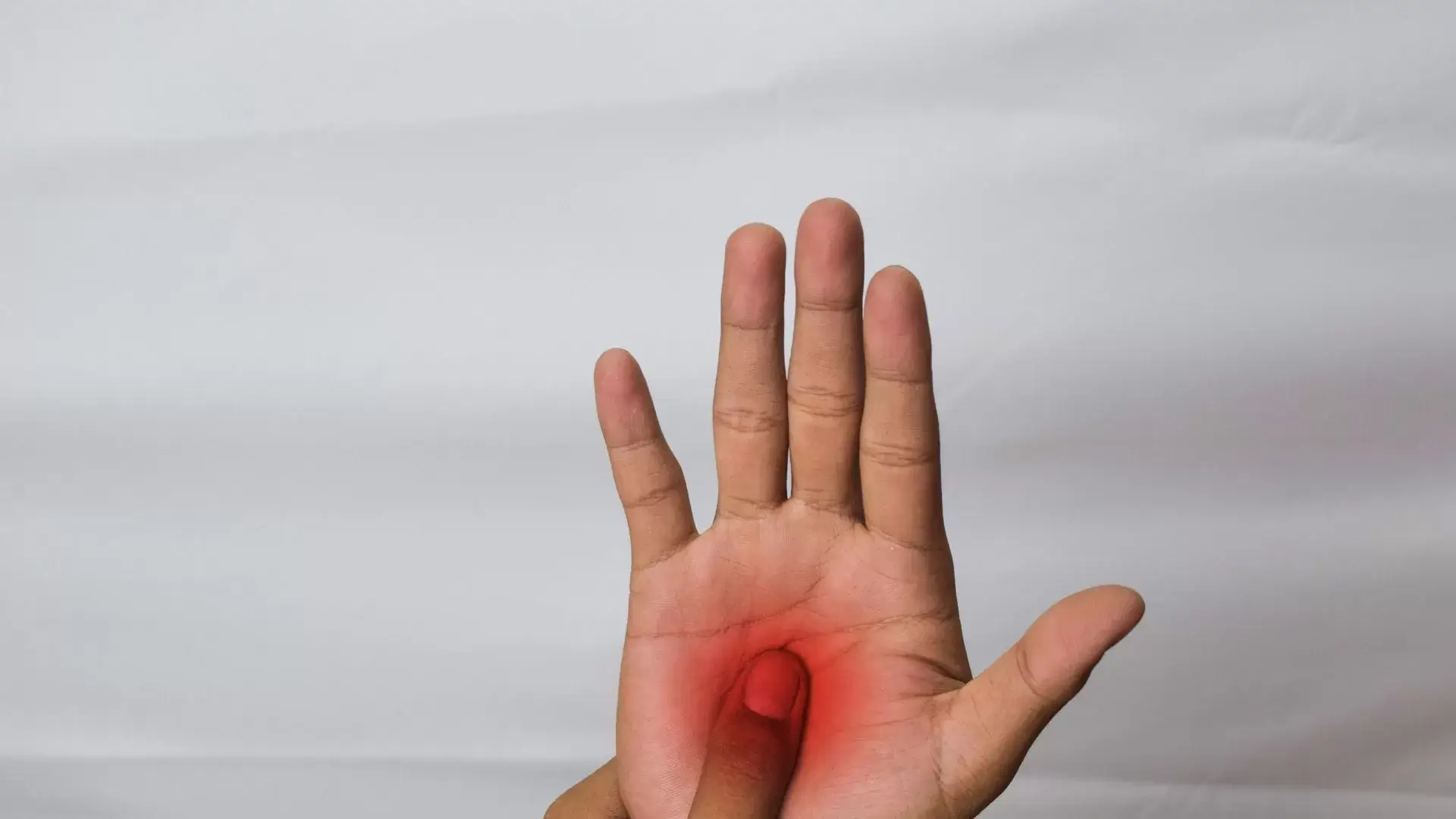Chiropractor for Repetitive Strain Injury care provides effective treatment for those experiencing RSI in Mississauga. If we’re dealing with a repetitive strain injury (RSI) in Mississauga, we can turn to local chiropractors for effective treatment. They focus on both the symptoms and the root causes of RSI, utilizing a holistic approach that includes spinal adjustments, ergonomic education, and personalized exercise plans. This thorough care helps us regain function and greatly reduces pain without relying on medication. Early intervention is vital, so seeking chiropractic help at the first sign of issues is essential. By exploring our options further, we can discover how chiropractic care specifically addresses our unique needs and promotes long-term recovery.

At Mississauga Physio Chiro Clinic, we offer extensive physiotherapy and chiropractic services designed to effectively treat repetitive strain injuries and enhance overall well-being. We recognize that conditions like carpal tunnel syndrome, wrist pain, and neck pain can greatly impact daily life. Our team is dedicated to providing personalized care that addresses both acute and chronic pain through targeted pain management strategies.
We focus on work-related musculoskeletal disorders that often arise from repetitive tasks and poor ergonomics. By evaluating each individual’s needs, we develop tailored treatment plans that may include manual therapy, exercise, and education on using ergonomic keyboards and proper workspace setups. This holistic approach not only aims to alleviate existing discomfort but also to prevent future injuries.
Our Best Physiotherapy and Chiropractic Services in Mississauga prioritize long-term recovery and wellness. We believe in empowering our patients with knowledge and prevention strategies to minimize the risk of recurrence. Together, we can create a supportive environment where healing occurs, and you can return to your daily activities with confidence and comfort. Let’s work together to overcome repetitive strain injuries and enhance your overall quality of life.
Understanding the causes and contributing factors of repetitive strain injury (RSI) is vital for effectively preventing and treating these conditions. RSI often arises from overuse injuries, where repetitive movements lead to cumulative trauma disorders. We commonly see this in individuals engaged in activities that require prolonged periods of the same motion, such as typing or assembly line work.
Poor ergonomics in the workplace can greatly contribute to the development of RSI. When our workstations lack proper alignment, we may experience increased muscle fatigue, which can lead to inflammation and pain in areas like the hands and shoulders. This discomfort often manifests as hand pain or shoulder pain, which can interfere with daily tasks and overall quality of life.
Moreover, as we push through our daily responsibilities, we may unknowingly exacerbate these issues. Recognizing the signs of muscle fatigue and taking breaks can help mitigate the risk of developing a workplace injury. By understanding these factors, we can create a proactive approach to preventing RSI and promoting healthier work habits. It’s essential to prioritize our well-being, ensuring we remain productive without compromising our health.
Recognizing the key symptoms of repetitive strain injury (RSI) is vital for us to determine when it’s time to consult a chiropractor for effective relief and recovery. Common indicators include forearm pain and elbow pain, often accompanied by numbness and tingling sensations. These symptoms can arise from prolonged activities like typing or using an ergonomic mouse, leading to discomfort and even weakness in the affected areas.
As we navigate our daily tasks, we might also notice a loss of grip strength, making simple actions increasingly difficult. This decline can impact our productivity and overall quality of life. If we experience any of these symptoms, it’s important to listen to our bodies and take them seriously. Early intervention can prevent further complications and facilitate a smoother recovery process.
In addition to chiropractic care, we may also consider physical therapy as part of our treatment plan. By addressing these symptoms promptly and seeking professional guidance, we can effectively manage our repetitive strain injury and return to our daily activities with greater ease and comfort. Let’s not hesitate to consult a chiropractor when we notice these warning signs.
How can chiropractic care play an essential role in our recovery from repetitive strain injury (RSI)? By addressing the root causes of our discomfort, chiropractic care provides a thorough approach that combines various techniques tailored to our needs. It begins with evaluating our workstation setup and office ergonomics, ensuring that our posture is aligned to minimize postural strain.
Chiropractors can identify nerve compression issues that may be aggravating our symptoms, offering targeted anti-inflammatory treatment to reduce pain and inflammation. In addition, they guide us through effective stretching and strengthening exercises to enhance our resilience against future injuries.
Incorporating occupational therapy into our treatment plan can also be beneficial, as it helps us develop better habits and techniques for our daily tasks. By working collaboratively with a chiropractor, we can create a holistic recovery plan that emphasizes both immediate relief and long-term prevention. Ultimately, chiropractic care empowers us to regain control over our health and well-being, allowing us to return to our activities with renewed strength and comfort.

Chiropractic adjustments can considerably alleviate pain and improve function in the wrist, hand, and forearm, providing a targeted approach to treating repetitive strain injuries. When we experience RSI, often linked to computer-related injuries, our first instinct might be to apply a wrist brace or hand splint. While these aids can help, chiropractic care addresses the underlying causes of discomfort.
Through precise chiropractic adjustments, we can facilitate nerve decompression and relieve pressure on affected areas. This is especially beneficial for conditions like tendinitis and trigger finger, which can result from repetitive motions. By realigning the joints and relieving tension in the surrounding muscles, we enhance mobility and reduce pain.
Incorporating massage therapy into our treatment plan further complements the benefits of chiropractic adjustments. It can promote blood circulation and muscle relaxation, aiding in the overall recovery process. Together, these methods not only target symptoms but also support long-term healing.
If we’re dealing with wrist, hand, or forearm pain, seeking chiropractic care can be an essential step toward regaining our function and quality of life. Let’s take proactive measures to address our repetitive strain injuries effectively.
When dealing with repetitive strain injuries in the elbow and shoulder, we can utilize a variety of effective chiropractic techniques to restore function and alleviate pain. Conditions like tennis elbow (lateral epicondylitis) and golfer’s elbow (medial epicondylitis) require targeted treatment. We often start with manual adjustments to realign the joints, improving mobility and reducing discomfort.
In cases of tendonitis or de Quervain’s tenosynovitis, we incorporate soft tissue therapy to relieve tension in the affected muscles and tendons. These techniques help enhance blood flow, promoting healing while addressing the root causes of the injury. For shoulder RSI and other occupational overuse syndromes, we focus on strengthening exercises that improve stability and prevent future injuries.
We also educate our patients on proper ergonomics, especially for those involved in manual labor or repetitive tasks. By implementing these chiropractic techniques, we aim not just to treat the symptoms but to empower our patients with knowledge and tools to maintain their physical health. Our goal is to help restore their quality of life, allowing them to return to activities they love without pain.
As we address the complexities of repetitive strain injuries, managing neck and upper back pain becomes an essential part of our thorough chiropractic care approach. Many of us experience discomfort due to repetitive motion injuries, often arising from awkward postures or forceful exertions. Conditions such as neck pain, upper back pain, and tenosynovitis can greatly impact our daily lives.
In our practice, we recognize that typing injuries are common, particularly among those who spend long hours at a desk. These injuries can lead to swelling and discomfort, making it vital to employ effective chiropractic care strategies. Our focus is on restoring mobility, reducing pain, and enhancing overall function.
We utilize a combination of spinal adjustments, soft tissue therapy, and personalized exercise programs tailored to address the specific needs of our patients, including those dealing with musician’s injuries. By alleviating tension and promoting healing, we help our patients regain their quality of life. Our goal is to empower everyone to move freely without pain, allowing them to return to their everyday activities with renewed strength and confidence. Together, we can navigate the path to recovery and wellness.
To effectively reduce strain and prevent repetitive strain injuries, we must prioritize postural corrections that promote proper alignment and support our body’s natural mechanics. Poor posture can lead to various issues, including excessive writing strain, fine motor strain, and conditions like golfer’s elbow and de Quervain’s tenosynovitis. By focusing on postural corrections, we can alleviate the strain on our muscles and joints, reducing the risk of tendinosis and bursitis.
We should be mindful of how long we maintain prolonged static positions, especially during activities such as typing or writing. Regular breaks and adjustments can help reset our posture and prevent discomfort. Engaging in exercises that strengthen our core and back muscles also plays a crucial role in maintaining proper alignment throughout our daily activities.
Working with a chiropractor can provide valuable insights into effective postural corrections tailored to our individual needs. They can guide us in identifying habits that contribute to strain and offer strategies to minimize these risks. By taking proactive steps, we can foster a healthier environment for our bodies, ultimately reducing the likelihood of repetitive strain injuries and enhancing our overall well-being.

Chiropractic care offers effective approaches for addressing nerve compression and providing relief from repetitive strain injuries, helping us regain mobility and comfort in our daily activities. As chiropractors, we recognize that conditions such as carpal tunnel syndrome (CTS), golfer’s elbow, and de Quervain’s tenosynovitis can greatly impact our quality of life.
By evaluating the underlying causes of these repetitive stress injuries (RSI), we can tailor treatment plans that focus on alleviating symptoms and restoring function. Our approach often includes spinal adjustments, soft tissue techniques, and ergonomic advice to relieve nerve compression and improve overall biomechanics.
In cases where conservative measures aren’t enough, we may discuss the option of corticosteroid injections to ease inflammation or even surgery for RSI as a last resort. We acknowledge that chronic traumatic disorders (CTD) and work-related musculoskeletal disorders (WRMSD) can hinder our ability to perform daily tasks effectively, which is why a thorough treatment strategy is essential.
Through collaborative care, we can effectively manage sports-related RSI and empower ourselves to thrive in our activities without pain or limitation.
Soft tissue therapy and myofascial release play a significant role in our treatment plans for repetitive strain injuries, complementing the spinal adjustments and ergonomic guidance we provide to address the underlying issues causing discomfort. These techniques are particularly effective for conditions like golfer’s elbow, de Quervain’s tenosynovitis, and stenosing tenosynovitis, which often arise from repetitive motions.
When we apply soft tissue therapy, we focus on relieving tension in the muscles and fascia, which can become tight due to repetitive tasks such as typing or gaming. This is vital in conditions like mouse arm, smartphone thumb, texter’s thumb, and gamer’s thumb, where the muscles in the hands and forearms are overworked.
Myofascial release helps restore mobility by releasing restrictions in the connective tissue that can contribute to pain and discomfort. By integrating these therapies into our approach, we aim to reduce pain, improve function, and expedite recovery for those suffering from repetitive strain injuries. Our goal is to empower you with the tools and techniques necessary to prevent future injuries and maintain your overall well-being.
How can chiropractic care effectively address workplace-related repetitive strain injuries that many of us encounter in our daily routines? Whether we’re dealing with golfer’s elbow, de quervain’s tenosynovitis, or texter’s thumb, chiropractic care provides a holistic approach to managing these conditions. Our chiropractor can assess the underlying causes of our repetitive strain injuries, which often stem from poor ergonomics, overuse, or improper posture in various work environments.
For those of us engaged in factory work or facing hand-arm vibration syndrome, tailored chiropractic treatments can alleviate pain and improve function. By utilizing techniques such as spinal adjustments, soft tissue therapy, and ergonomic advice, we can regain mobility and reduce discomfort. Musicians, too, may benefit greatly from chiropractic care aimed at addressing specific musician’s injuries, allowing us to continue our passion without pain.
Ultimately, chiropractic care not only helps in alleviating the symptoms of workplace injuries but also promotes long-term health and wellness. By addressing the root causes of our repetitive strain injuries, we can enhance our work performance and improve our overall quality of life.
Preventing repetitive strain injuries (RSIs) is vital for athletes, musicians, and office workers alike, as we all engage in activities that can lead to overuse and discomfort. To effectively implement RSI prevention strategies, we need to be proactive in our approach.
For athletes, maintaining proper technique can help minimize risks associated with conditions like golfer’s elbow and vibration syndrome. Regular breaks and cross-training can also reduce strain on specific muscle groups. Musicians should consider ergonomic instruments and take breaks to avoid musician’s injury. Stretching and proper posture during practice can make a significant difference.
Office workers face challenges such as texter’s thumb and gamer’s thumb. We can combat these issues by using ergonomic keyboards and mice, adjusting our workstations, and incorporating frequent breaks to relieve tension. Mindful awareness of our hand and wrist positions is imperative.
Ultimately, it’s about creating a balanced routine that accommodates our individual needs. By implementing these RSI prevention strategies, we can enjoy our passions while minimizing the risk of injury. Let’s prioritize our health to guarantee we can continue performing at our best!
Incorporating targeted strengthening and stretching exercises into our recovery routine can greatly alleviate the symptoms of repetitive strain injuries (RSIs) and promote long-term healing. These exercises are vital for conditions like de Quervain’s tenosynovitis, golfer’s elbow, texter’s thumb, gamer’s thumb, and musician’s injury. Working with a chiropractor, we can develop a personalized exercise plan tailored to our specific needs.
Strengthening exercises help us build resilience in the affected muscles and tendons, reducing the risk of further injury. For instance, wrist curls and grip strengthening can be beneficial for those experiencing pain from texter’s thumb. Meanwhile, stretching exercises improve flexibility and blood flow, which can enhance recovery. Simple stretches for the forearms and wrists can ease tension and promote mobility.
As we engage in these exercises, it’s important to listen to our bodies and avoid pushing through pain. Regular practice not only aids in our RSI recovery but also helps prevent future occurrences. By committing to these strengthening and stretching routines, we can empower ourselves on the journey to full recovery and regain the functionality we may have lost due to repetitive strain injuries.
As we focus on recovery from repetitive strain injuries, exploring drug-free pain management solutions through chiropractic care can provide significant relief and support our healing process. Chiropractors specialize in addressing various conditions caused by repetitive strain, such as golfer’s elbow, de quervain’s tenosynovitis, texter’s thumb, gamer’s thumb, musician’s injury, and even HAVS.
Chiropractic solutions involve gentle adjustments and targeted therapies that aim to restore proper function and alleviate pain without the use of medications. By identifying misalignments in our musculoskeletal system, our chiropractor can help reduce inflammation and tension, allowing us to regain mobility. Additionally, they can guide us in developing personalized exercise plans that strengthen the affected areas, promoting long-term recovery.
When considering treatment options for repetitive strain injuries, we should weigh the benefits of chiropractic care against other available therapies to find the most effective path to recovery. Chiropractic care focuses on aligning the spine and joints, which can alleviate pain associated with conditions like carpal tunnel syndrome (CTS), golfer’s elbow, and de Quervain’s tenosynovitis.
In contrast, physical therapy often emphasizes strengthening exercises and stretches, which can be beneficial for conditions such as texter’s thumb and gamer’s thumb. While both approaches have their merits, chiropractic adjustments can provide immediate relief for assembly line injuries and musician’s injuries by addressing underlying spinal misalignments.
Medication and injections may also be considered, but they often come with side effects and do not address the root cause of the problem. We can reach out to local chiropractic clinics, such as those near 1834 Lakeshore Rd W #6C, Mississauga, ON L5J 1J7, to explore personalized treatment plans. By evaluating these options together, we can make informed decisions that best suit our recovery journey from RSI.
Exploring the benefits of professional chiropractic care can lead us to lasting relief from repetitive strain injuries in Mississauga, helping us address not just the symptoms but the underlying causes as well. Chiropractors focus on restoring proper function to our musculoskeletal system, which is often disrupted by repetitive movements and poor posture.
When we seek chiropractic care, we receive a thorough assessment and personalized treatment plans tailored to our specific needs. Techniques such as spinal adjustments, soft tissue therapy, and exercise recommendations can greatly alleviate pain and improve our overall mobility.
Moreover, chiropractors educate us about ergonomics and lifestyle changes that can prevent future injuries, empowering us to take control of our health. By integrating chiropractic care into our recovery process, we not only find relief but also foster resilience against future strain.
In Mississauga, we have access to skilled chiropractors who understand the unique challenges of RSI. With their expertise, we can commence on a healing journey that addresses both the immediate discomfort and the long-term health of our bodies. Let’s prioritize our well-being by seeking professional chiropractic care today. Contact us now!
Mississauga, a vibrant city in Ontario, offers a diverse community and a wealth of resources for residents seeking health and wellness solutions, including effective treatments for repetitive strain injuries. We find ourselves in a city that not only boasts a rich cultural tapestry but also prioritizes the well-being of its inhabitants. With numerous parks, recreational facilities, and wellness centers, Mississauga is an ideal location for those looking to address their health concerns.
As we navigate the hustle and bustle of daily life, the risk of repetitive strain injuries increases, particularly for those in physically demanding jobs or those who spend long hours at desks. Fortunately, Mississauga is home to skilled chiropractors who specialize in treating these conditions. They offer personalized care plans tailored to our unique needs, helping us regain balance and functionality.
Moreover, the city’s commitment to accessible health care guarantees that we can easily find the support we need. By tapping into the local resources available, we can foster a healthier lifestyle and effectively manage our repetitive strain injuries, allowing us to thrive both personally and professionally in this dynamic community.

When we consider chiropractic treatment duration for conditions like RSI, it typically varies based on individual needs. Generally, we can expect an initial assessment followed by a tailored treatment plan. Most people see improvements within a few weeks, but full recovery might take several months. It’s crucial for us to stay committed to the treatment plan and communicate openly with our chiropractor to guarantee ideal results throughout the healing process.
Chiropractic adjustments can vary in sensation for individuals, but most of us find them to be quite tolerable. While some might experience mild discomfort during the adjustment, it’s usually brief and followed by relief. Our trained chiropractors focus on creating a comfortable environment, ensuring we’re informed and at ease throughout the process. Ultimately, the goal is to alleviate pain and improve function, making the experience beneficial overall.
Yes, we can see a chiropractor without a referral. Many chiropractic clinics allow us to schedule appointments directly, making it convenient for us to seek care. It’s always a good idea to check with our insurance provider, as some plans may have specific requirements. When we take the initiative to see a chiropractor, we’re prioritizing our well-being and taking proactive steps towards managing any discomfort or pain we may be experiencing.
When we head to a chiropractic appointment, it’s best to wear comfortable, loose-fitting clothing that allows for easy movement. Avoid tight jeans or restrictive outfits, as they’ll hinder our range of motion during the assessment and treatment. We should also consider layers, since clinic temperatures can vary. By dressing appropriately, we can guarantee a more effective session, allowing the chiropractor to focus on our needs without unnecessary distractions.
When considering whether our insurance covers chiropractic treatment for conditions like RSI, it’s important to check our specific policy details. Most insurance plans do offer coverage for chiropractic services, but the extent can vary. We should reach out to our insurance provider to clarify what’s included, any limitations, and if we need a referral. Understanding these details can help us make informed decisions about our treatment options and financial responsibilities.
Reach out to us today to book an appointment or learn more about our services. Our friendly team is here to answer your questions and help you take the first step toward improved health and wellness.
(647) 372-1209

At our Mississauga Physio Chiro Clinic, we are dedicated to providing personalized care that addresses the root cause of your discomfort. With a team of experienced physiotherapists and chiropractors, we focus on restoring your mobility, relieving pain, and enhancing your overall well-being.